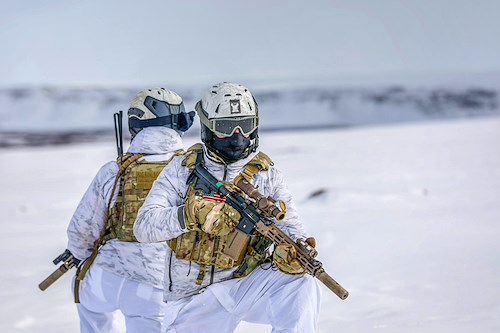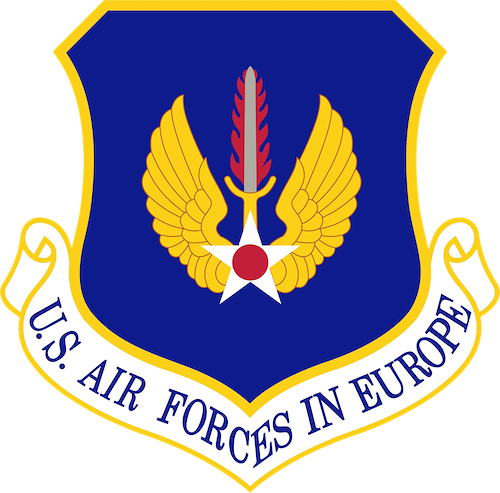Gallery contains 2 images
×
Photo 1 of 2
USEUCOM hosts ‘Arctic Week’ following Pentagon’s newly unveiled strategy
Special Forces Operators conducted training in austere conditions at Greenland's Pituffik Space Base in 2023 to support Arctic Edge, a U.S. Northern Command-led homeland defense exercise demonstrating the U.S. military's capabilities in extreme cold weather and the nation's commitment
to mutual strategic security interests in the Arctic region.
Photo by: Photo courtesy of U.S. Special Operations Command North
Photo 2 of 2
USEUCOM hosts ‘Arctic Week’ following Pentagon’s newly unveiled strategy
U.S. Marines, alongside NATO Allies and partners, strategically advanced, securing cover and providing fire support during a breaching and clearing mission to prepare for biennial exercise Nordic Response in Setermoen, Norway, in early 2024. During the course of this NATO extreme cold weather training, multinational military forces enhanced Arctic security, elevated global readiness and fostered interoperability.
Photo by: Lance Cpl. Christian Salazar
As winter approaches in the Arctic, U.S. European Command (USEUCOM) hosted its inaugural “Arctic Week” in Stuttgart, Germany, Sept. 23-25, 2024. This comprehensive event brought together nearly 50 military and civilian staff for an in-depth examination of Arctic issues, culminating in a senior-leader tabletop exercise designed to assess the command’s strategic responses in one of the world’s most challenging environments.
The week-long engagement featured significant contributions from experts at the Ted Stevens Center for Arctic Security Studies, a U.S. Defense Department regional center based in Alaska.
As DoD’s newest regional center focused on exploring global security opportunities and challenges through education, research and engagement, the Ted Stevens Center’s mission is focused exclusively on the Arctic. The center works to build international networks of security leaders to advance U.S. national security priorities in the Arctic region and to ensure a stable, rules-based order in this critical region.
“The imperative to sustain security in the Arctic has never been clearer,” said U.S. Air Force Maj. Gen. Russell Driggers, USEUCOM’s director of plans, policy, strategy and capabilities. “Ensuring our team remains at the forefront of developments — spanning the environmental, economic, security and diplomatic realms — is critical to our role as America’s geographic combatant command in Europe. We must continue to work closely with our Allies and partners to preserve peace in the High North.”
The event, guided by Arctic subject-matter experts from the Ted Stevens Center based at Joint Base Elmendorf-Richardson in Alaska’s largest city, Anchorage, provided USEUCOM staff with enhanced insights into the rapidly changing Arctic environment. Participants explored the commercial and environmental challenges, geopolitical influences and strategic issues affecting the region. These sessions aimed to deepen understanding of the impacts on the U.S., its Allies and partners operating in the Arctic.
“To ensure the security and stability of the Arctic, it’s essential for security practitioners to stay informed and agile regarding emerging dynamics in this crucial region,” said Randy “Church” Kee, Ted Stevens Center director and a retired U.S. Air Force major general. “As climate change and shifting geopolitical dynamics redefine the Arctic landscape, focused Arctic conversations will increase this command’s ability to enhance regional planning, programs and activities, while enhancing the security of U.S., Allies and partners.”
Maj. Gen. Driggers, who serves as the command’s point person for Arctic strategy and plans, emphasized the significance of such engagements, noting, “The future of Arctic security relies on our collective commitment to understanding and addressing the evolving challenges with foresight and resilience. Events like Arctic Week are crucial to advancing that deep understanding.”










